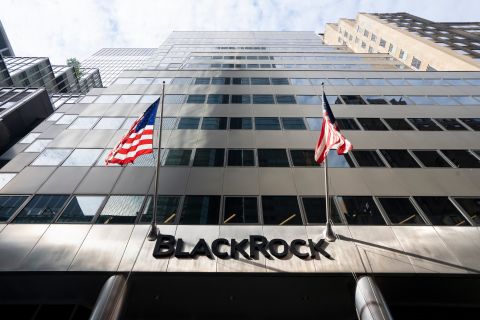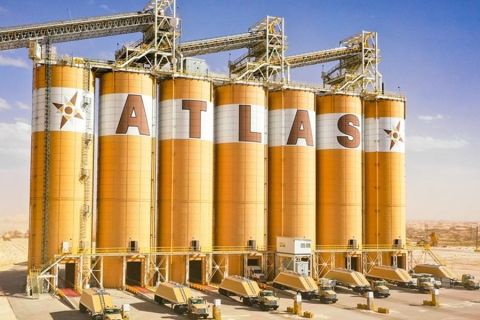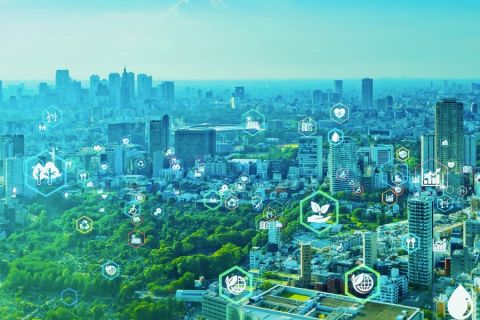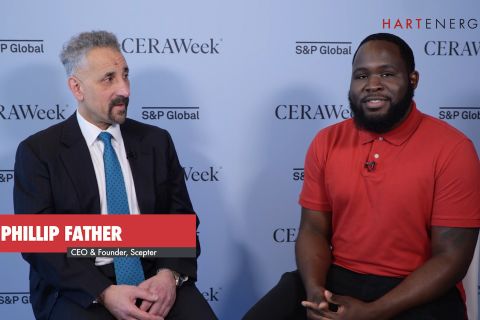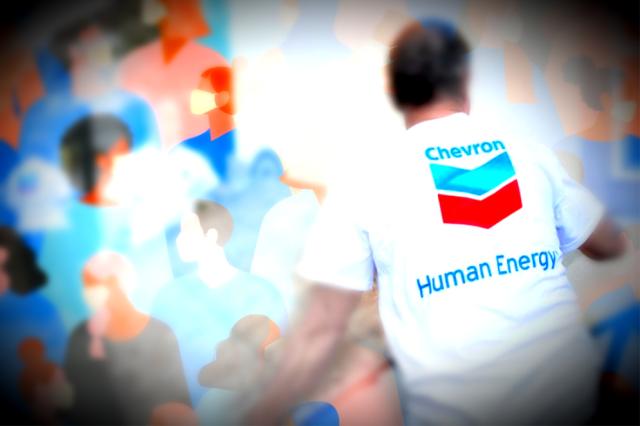
Chevron provided a $300,000 contribution to Give2Asia for work with the China Women’s Development Foundation. (Source: Chevron Corp.; Shutterstock.com)
[Editor's note: This article continues to be updated. Send your company's news to Ariana Hurtado at ahurtado@hartenergy.com to be considered for inclusion.]
The double whammy of low oil prices and the coronavirus forcing office closures has resulted in suspended operations, capex cuts and furloughs, plus countless other ramifications. However, if unexpected crises historically have proved anything, it’s that community comes together in times of need. The following is a sampling of the companies in the oil and gas industry stepping up during this COVID-19 pandemic to help make a difference.
Baker Hughes
Baker Hughes additive manufacturing teams in the U.S., Germany, Scotland, Italy and Saudi Arabia are working with local hospitals, industrial consortiums and partners to print hundreds of face shield pieces and other high-demand medical equipment, according to a company statement on its website.
"Our teams are gathering and donating PPE [personal protective equipment] to local healthcare facilities, including thousands of face masks and goggles," Baker Hughes said on the site.
In addition, Baker Hughes has retasked its 3D printers in Houston, Oklahoma City, Italy, Germany, the U.K. and Saudi Arabia to make protective gear for health care workers on the front lines of the COVID-19 pandemic, according to an April 1 Houston Chronicle article.
The printers, which can run 24/7 with almost no supervision, have made more than 25,000 individual parts to date for drilling operations and oil production, but they were reprogrammed to make up to 40 face-shield brackets per day, for example, as well as other protective gear, according to the article.
BP
BP has made several community contributions in the wake of the coronavirus. The company donated $2 million to the COVID-19 Solidarity Response Fund to support the work of the World Health Organization, according to an April 1 press release.
At BP's retail stations in the U.K., the company is supplying free fuel for emergency service vehicles and air ambulances. "We are supporting similar efforts in Spain, Turkey, Poland and Australia. And in Germany we have provided fuel cards to health care workers," BP stated in the release.
Moreover, food from cafeterias that BP has closed in the U.K. is being donated to food banks and charities.
BP is also using its own stocks and supply chain to donate personal protective equipment to health services in the U.S., the U.K., France, Belgium, Spain, The Netherlands and Germany.
BP's biofuels joint venture in Brazil is diverting some of its sugarcane ethanol production to make a disinfectant product and supplying it to local health services that serve a population of 1.4 million.
Additionally, after coronavirus border restrictions cut off supplies of clean water to a town in Mauritania, BP's local team repaired an old water tank to provide a temporary supply for the community and is working with authorities and nongovernmental organizations to develop a permanent solution.
BP also is providing access to its supercomputer to help researchers halt the spread of COVID-19, according to an April 16 announcement.
"BP will donate its significant supercomputing capability to the public-private consortium formed in March 2020 by the White House’s Office of Science and Technology Policy, the U.S. Department of Energy and IBM," the press release stated. "The group, known as the COVID-19 High Performance Computing Consortium, will pool resources and expertise from Amazon Web Services, Google Cloud, Microsoft, Hewlett Packard Enterprise, BP and others. They aim to provide COVID-19 researchers worldwide with access to the most powerful high-performance computing resources that can significantly advance the pace of scientific discovery in the fight to stop the virus."
Bristow
Bristow Americas’ Search and Rescue (SAR) teams have successfully transported acutely ill offshore workers in the oil and gas industry with suspected cases of COVID-19 using specially configured and equipped SAR aircrafts for operations in the Gulf of Mexico, Trinidad and Tobago, and Guyana, according to a March 24 press release.
“To date, Bristow has safely completed 24 successful requests to transport offshore workers and COVID-19 test kits to remote and isolated offshore platforms, drilling rigs and drillships,” the release stated. “Bristow will continue to support emergency medical evacuation requests to transport potentially infectious patients, which may include suspected or confirmed COVID-19 patients.”
Bristow is a provider of offshore oil and gas transportation, SAR and aircraft support services to government and civil organizations worldwide.
Chevron
In response to the coronavirus, Chevron Corp. provided a $300,000 contribution from the Chevron Global Community Fund to Give2Asia for work with the China Women’s Development Foundation, according to a report on the U.S. Chamber of Commerce Foundation website.
De Nora Neptune LLC
Texas-based water service company De Nora Neptune LLC specializes in “on-the-fly” frac water treatment and cost-effective produced water recycling in the unconventional oil and gas industry. The company’s mobile treatment units are designed to recycle produced water and disinfect frac water by manufacturing bleach on site.
Now these units, each capable of producing more than 100,000 gallons of disinfectant per day, are being used to fill the shortage of disinfectants for the general public during the coronavirus pandemic thanks to a partnership with PetraTech Consultants LLC.
DuPont
DuPont pledged to donate equipment to agencies in China that are handling medical cases, according to a report on the U.S. Chamber of Commerce Foundation website.
“DuPont has donated 16,000 pieces of personal protective garments to the most affected areas through the China Red Cross Foundation to protect healthcare workers and frontline personnel in the prevention and control of novel coronavirus,” the report stated. “DuPont has also donated probiotic products worth more than 800,000 yuan to help regulate and improve people’s immunity.”
DuPont also has increased its production to meet demand for protective coverings for healthcare workers.
“The DuPont Safety business is working tirelessly to help those directly impacted by the virus including first responders on the frontline,” the company stated on its website. “Thousands of DuPont employees are working around the clock in all parts of the world to increase capacity of protective garments during this time of high demand.”
The company’s Tyvek manufacturing operations run 24 hours per day and the nine global manufacturing facilities that produce garments are also working overtime to increase capacity.
“We have an experienced global manufacturing network that is fully activated and prioritizing the needs of frontline response personnel in the most impacted regions combatting the Coronavirus,” the company said.
Emerson
To assist with the shortage of protective medical gear such as face masks, Emerson has stepped up production of a standard assembly of its Branson Ultrasonic Welders for bonding these nonwoven fabrics, according to a March 24 article posted on the company's website.
Emerson's customers use its ultrasonic technology to manufacture these nonwoven garments quickly, safely and cleanly, and Emerson is encouraging and motivating new clients in parallel industries to do the same. New manufacturers are purchasing the technology to increase production of these critical medical garments, according to the article.
Emerson offers Branson ultrasonic equipment that can slit, bond, seal or quilt nonwoven synthetic materials to meet a wide range of medical and nonmedical application requirements. Medical applications include surgical face masks, face shields, disposable hygiene products, gowns and filter media.
Eni
Eni is supporting local health facilities in Italy during this pandemic. The company has launched a series of initiatives, bringing Eni's total COVID-19 contribution to 35 million euros, according to an April 7 press release.
"Eni acted quickly to buy and import electromedical and personal protective equipment to donate to health facilities, including through a special airlift from China," the release stated. "The equipment allocated to local health facilities includes about 600 ventilators, 55 portable oximeters, 127 syringe pumps, 38 patient monitors, 40 intensive care beds and large numbers of surgical and superior masks."
Additionally, Eni is supplying its supercomputing infrastructure to support researchers in virus analysis.
"Eni has freely made its supercomputing infrastructure and its molecular modeling skills available for Coronavirus research, offering its contribution with its tools and resources of excellence in the fight against this global emergency," according to an April 9 press release. "The collaboration is part of the European EXSCALATE4CoV project, led by the biopharmaceutical company Dompé, which brings together institutions and research centers in Italy and other European countries to identify the safest and most promising drugs in the fight against the coronavirus. Eni contributes to the project in partnership with Cineca, a non-profit research consortium that involves the collaboration of universities, national research centers and the Italian Ministry of Education, University and Research."
Exelon Corp.
The Exelon Foundation, along with ComEd and Exelon Generation, announced a $2 million donation to the Illinois COVID-19 Response Fund to help Illinois residents impacted by the pandemic, according to a March 27 news release.
"This donation adds to the more than $1.15 million Exelon Corp. and its family of companies previously donated to national and local relief organizations in the communities they serve," the release stated. "Previous donations include $250,000 to the United Way of Metro Chicago and the Chicago Community Trust’s COVID-19 Response Fund to support their efforts to provide essential services during the pandemic."
The Illinois COVID-19 Response Fund is a joint effort between the United Way of Illinois and the Alliance of Illinois Community Foundations, in collaboration with the Office of the Governor, to raise funds for relief organizations across the state serving individuals, families and communities hit hardest by the COVID-19 pandemic. Donations will be used to assist those most in need with crucial resources, including emergency food and basic supplies, interim housing and shelter, primary health care services, financial assistance and support for children and other vulnerable populations, according to the release.
Exxon Mobil
Exxon Mobil chemical plants are working to help fill shortages in medical protective gear and disinfectants, according to a March 27 company news release.
"The world’s largest isopropyl alcohol production unit in the Baton Rouge Chemical Plant is working at maximum capacity to provide the main ingredient in hand sanitizer to states in need," the release stated. "We are also helping provide the necessary chemicals used in medical face masks, IV bags, ventilator machines and hospital gowns."
The company is also producing high-performance polymers for protective personal equipment, like gloves and medical gowns, according to an April 1 news release.
"The company’s plants around the world manufacture the building blocks for plastics, like polypropylene," the company stated in the release. "This specialized polymer strengthens the medical face masks that help reduce the spread of diseases like COVID-19 and other airborne pathogens. As well as sponges, pads and wraps, polypropylene is also used in personal protective equipment, or PPE, including surgical gowns and shoe covers."
Exxon Mobil is also helping redesign and manufacture protective face masks and shields, according to an April 2 news release.
"Health care workers are faced with a scarcity of protective face masks and shields, and the supply chains to produce them are taxed to their limits," the company stated in the release. "That’s why an Exxon Mobil team of experts in chemicals, materials science and manufacturing is offering their experience to help a collaborative effort organized by the Global Center for Medical Innovation. By quickly connecting its customers to solution providers, Exxon Mobil helped create a new supply chain to respond to the medical needs in hospitals across the country."
Their efforts have resulted in the production of 50,000 face shields, and production facilities are aiming to soon manufacture upward of 170,000 more per hour. The collaboration also has produced models for a new, reusable face mask design that will address the shortage of N95 protective masks.
The company is also supporting hunger relief in the Midland-Odessa, Texas, area and across West Texas with a $100,000 donation to the West Texas Food Bank to help those facing difficult economic circumstances resulting from the COVID-19 pandemic, according to an April 3 press release.
The Carlsbad Municipal School District in New Mexico is receiving $100,000 from Exxon Mobil to support online education in response to unprecedented circumstances associated with the COVID-19 pandemic. Funding will help provide technology and internet connectivity to low income students who are living in remote locations with limited access to the internet, according to a separate April 3 press release.
Mesa Natural Gas Solutions /
Crusoe Energy Systems
Mesa Natural Gas Solutions plans to donate natural gas generators to power computing modules assisting in the search for a COVID-19 cure, according to a March 26 press release.
The computing modules are owned and managed by Crusoe Energy Systems Inc. and will represent a part of its Digital Flare Mitigation systems that are currently deployed around major U.S. oil and gas basins.
"Mesa generators, powered by natural gas that might otherwise be flared or wasted at oil and gas sites, will be the electricity supply for a growing number of computing modules configured to research COVID-19 therapies," the release stated.
The computing modules provide resources to the Folding@Home Consortium, a distributed computing system for life-science research launched out of Stanford University. The consortium allows researchers to remotely utilize Crusoe's computational resources for the vaccine search and discovery process. They have recently launched a new protein folding simulation project specifically targeting vaccines and therapeutic antibodies for COVID-19. The protein folding project simulates antibody proteins and how they might prevent a COVID-19 viral infection; however, the simulation process is very computationally intensive and therefore requires large amounts of electricity, according to the release.
"Mesa's contribution of donated power generation resources allows Crusoe to double the scale of its existing protein folding program, and Mesa's generators will soon begin powering 16 of Crusoe's graphic processing units that will support the consortium's work toward therapy and cure research for COVID-19," the release stated.
The sites that power protein-folding servers will be located at Bakken oilfield sites in North Dakota and Montana, but there are plans in development to deploy additional servers in other major U.S. oil basins.
MOL Group
MOL Group has started production of hand and surface sanitizers to offer protection against the coronavirus. Created on the basis of World Health Organization recommendations, the formulas for the two new products have been tested and approved by the National Institute of Pharmacy and Nutrition. Both products have been in short supply in Hungary.
MOL Lub Ltd. shifted production of a windshield washer production line at its Almásfüzitő plant in only one week, according to a March 25 press release.
“The unit is operating 24/7 in three shifts producing a daily volume of around 50,000 liters—allowing MOL to contribute to the global fight against COVID-19,” the release stated.
MOL Group is an integrated, international oil and gas company headquartered in Budapest, Hungary. The company is active in more than 30 countries.
National Fuel Gas Co.
National Fuel Gas Company Foundation, the charitable giving arm of National Fuel Gas Co., has made a $250,000 donation across the company’s New York and Pennsylvania service territories to help address the most critical needs in those communities in light of the COVID-19 pandemic, according to an April 7 press release.
In New York, grants will be given to United Way of Buffalo & Erie County’s WNY COVID-19 Community Response Fund as well as FeedMore WNY. In Pennsylvania, grants will be given to Erie Community Foundation, Second Harvest Food Bank of Northwest Pennsylvania and Community Food Warehouse of Mercer County.
OGUK
OGUK has partnered with Step Change in Safety to offer support to the tens of thousands of workers keeping the U.K. running with secure and affordable energy during the coronavirus pandemic, according to a March 25 press release.
New dedicated online hubs with guidance, videos and FAQs have been launched to provide oil and gas industry workers and their families with a one-stop shop to address concerns on the prevention and protection against coronavirus in about 150 manned installations across the U.K. Continental Shelf and the substantial onshore workforce. Both organizations are working jointly to provide the most accurate information about topics and services such as offshore helicopter travel, health screening and training recertification. The information is available at https://www.stepchangeinsafety.net/covid-19 and https://oilandgasuk.co.uk/covid-19/.
On April 1, OGUK and Step Change in Safety announced co-produced films that address the concerns of workers traveling offshore during the pandemic.
One film addresses the aspects of helicopter travel including operational procedures, arrival and departure protocols, and the transfer of passengers. The second film discusses coronavirus-related medical and health issues, including temperature checking, measures to take when temperatures are high and self-isolation offshore.
OMV
OMV has donated EUR 1 million in the form of OMV fuel cards. EUR 500,000 each is being given to the Austrian Red Cross and to Caritas Austria, both organizations experiencing high demand because of the coronavirus, according to an April 2 OMV news release.
Petrobras
Petrobras will donate 600,000 tests for the diagnosis of COVID-19 to the Unified Health System, according to a March 23 press release. The tests will be delivered to the Ministry of Health (receiving 400,0000) and the Secretary of Health of the State of Rio de Janeiro (receiving 200,000).
“These tests, of the RT-PCR type, are considered ‘gold standard’ by the Center for Disease Control and Prevention (CDC) of the United States because they provide an accurate diagnosis in the identification of the presence of the virus,” the release stated.
The tests are scheduled to be imported from the U.S. and should arrive in Brazil in April.
Petrobras also has created a multidisciplinary group of professionals from the Cenpes unit of its research center to evaluate and propose solutions in partnership with universities, companies and institutions that can help in fighting the coronavirus.
In addition, Petrobras made available about 20,000 safety equipment and hygiene products to the Clementino Fraga Filho University Hospital of the Federal University of Rio de Janeiro, according to a March 24 press release. Laboratory gloves, safety glasses, air-purifying masks, bottles, alcohol and detergent will be donated. The company said the materials, which belong to the stock of the company’s Cenpes, will be used in the care of patients with coronavirus and in the protection of health teams.
Moreover, Petrobras will direct part of the processing capacity of its high-performance computers, or supercomputers, to collaborate with research in fighting the coronavirus, in a partnership with the Chemistry Department of Stanford University, USA, according to a March 26 fairfieldsuntimes.com article.
"The goal is to contribute to the Folding@home Project, coordinated by this institution, dedicated to the study of the coronavirus behavior in the human body and how the disease progresses, from the interaction of viral proteins, making way for for the development of medication and vaccines. Among other advancements, this project has already helped in identifying the protein that links the COVID-19 to human cells," the article stated.
Up to two supercomputers in Petrobras' service may have their processing capacity redirected to these researches. These include the Santos Dumont, Latin America's largest supercomputer located in the National Scientific Computing Lab in Petrópolis, and the OBGON; both are located in Brazil.
Rosenberg Worley
Rosenberg Worley AS has donated thousands of pairs of nitrile gloves as well as protective suits and filter masks to help keep Stavanger University Hospital safe from COVID-19. As an integrated engineering, fabrication and construction provider, the company initially donated all suitable personal protective equipment from its own tool and equipment inventory. Then, working with its network of regional suppliers, Rosenberg Worley AS sourced several thousand pairs of gloves to protect healthcare staff at the hospital.
Morten Olsen Rygh, QHSSE manager for Rosenberg Worley AS, said, “Like so many companies, we wanted to acknowledge and support the fantastic effort of the national healthcare system in saving lives from COVID-19. In the last few weeks, we have worked together with the local authorities to identify all the equipment we have available to us that we can donate for use by our medical heroes at the hospital.”
Shell
In more than 15,000 participating retail sites across more than 30 countries, Shell is providing free food to healthcare professionals as well as truck drivers and the delivery people who are vital to maintaining supplies, according to an April 7 announcement on the company's website. The company will also offer free access to showers to truck drivers at participating motorway sites. In the U.K., as a first step, Shell has handed out more than 30,000 free sandwiches so far.
At Shell's major Nanhai joint venture chemicals production complex in Guangdong Province, China, the company has been operating at full capacity so that it can provide polypropylene and polyethylene, which have been needed to produce masks, packaging for disinfectants and other medical supplies.
Retail sites in China provided free fuel for the emergency services, secured supplies and made service stations safe places during the outbreak, according to the company's announcement. Similarly, in countries like Bulgaria, Poland, Ukraine, Czech Republic and Turkey, Shell has started supplying free fuel to emergency vehicles.
At Shell's manufacturing plants at Pernis in the Netherlands and Sarnia in Canada, for example, Shell is diverting resources to make isopropyl alcohol as fast as it can. This chemical ingredient makes up about half the content of hand-sanitizing liquids. In the Netherlands, Shell is making 2.5 million liters available free of charge for the healthcare sector.
In Germany, Shell set up a new supply chain within two weeks to help secure hand sanitizer for hospitals. The supply chain meets with medical standards and is part of an initiative from the German health ministry, overseen by the association for hospital pharmacists. In the first wave of deliveries, Shell donated 700 tonnes of bioethanal and separated it into manageable container sizes. This was then processed with components from other companies into 820,000 liters of hand santizer.
Shell has also been helping to develop face protectors for medical staff. In the Netherlands, Shell is working with a consortium that includes other companies, hospitals and Delft University of Technology. The adjusted snorkel masks cover the face fully and are connected to a medical filter by a part that is being produced using the 3D printers at the Shell Technology Centre Amsterdam. The team has been involved in the design and testing of the part and they are ready to scale up production.
Trendsetter Vulcan Offshore
Trendsetter Vulcan Offshore (TVO) has collaborated with local pulmonary and critical care physician Luis E. Chug, MD, to introduce personal protective equipment for healthcare workers fighting the coronavirus pandemic, according to an April 9 press release.
The ViraBox is an impervious transparent enclosure that is placed over patients to shield them and healthcare workers from potential contamination by the coronavirus. The large, plastic enclosure covers the upper part of a patient while allowing medical personnel to use sealed access holes to provide care.
Chug will donate two ViraBox units to a Houston hospital, and TVO is building an additional 10 units that will be donated to hospitals in Houston, Detroit, Colorado Springs, Colo., and Topeka, Kan.
"Meanwhile, TVO is working to develop ways to simplify and expedite production using 3D printing for long-lead-time and high-cost components and evaluating further design modifications that will allow the ViraBox to be used for procedures that require more than one person working on the patient at the same time," according to the release.
Williams
The Williams Cos. Inc. pledged $1 million through The Williams Foundation to provide community support focused primarily on emergency response, food insecurity, health and human services and K-12 distance learning solutions for public schools, the Tulsa, Okla.-based pipeline operator said in March 27 news release.
Additionally, the foundation will support Williams’ employees in making an impact, matching contributions to amplify their efforts.
Xylem
Xylem Inc. deployed three wastewater pumps to support the urgent need of Wuhan Huoshenshan Hospital, according to a report on the U.S. Chamber of Commerce Foundation website. Wuhan Huoshenshan Hospital is an emergency specialty field hospital that was constructed in January.
Recommended Reading
Darbonne: The ESG Sword: BlackRock's Life, Death by ESG
2024-04-17 - BlackRock, the $10 trillion investment manager, is getting heat for too much ESG investing, while shareholders are complaining it’s doing too little.
Fire Closes Atlas Energy’s Kermit, Texas Mining Facility
2024-04-15 - Atlas Energy Solutions said no injuries were reported and the closing of the mine would not affect services to the company’s Permian Basin customers.
Coalition Launches Decarbonization Program in Major US Cities, Counties
2024-04-11 - A national coalition will start decarbonization efforts in nine U.S. cities and counties following a federal award of $20 billion “green bank” grants.
Exclusive: Scepter CEO: Methane Emissions Detection Saves on Cost
2024-04-08 - Methane emissions detection saves on cost and "can pay for itself," Scepter CEO Phillip Father says in this Hart Energy exclusive interview.

